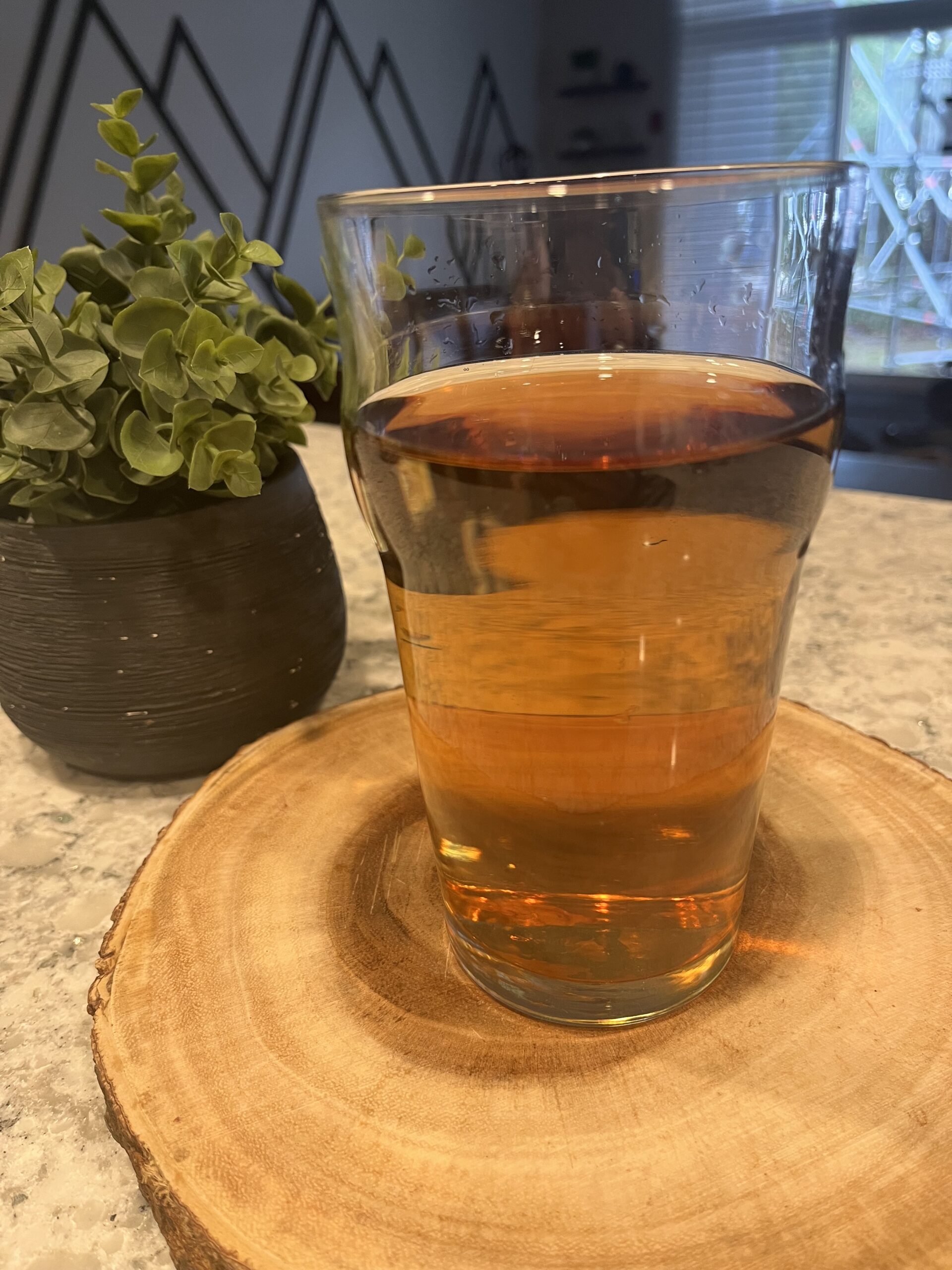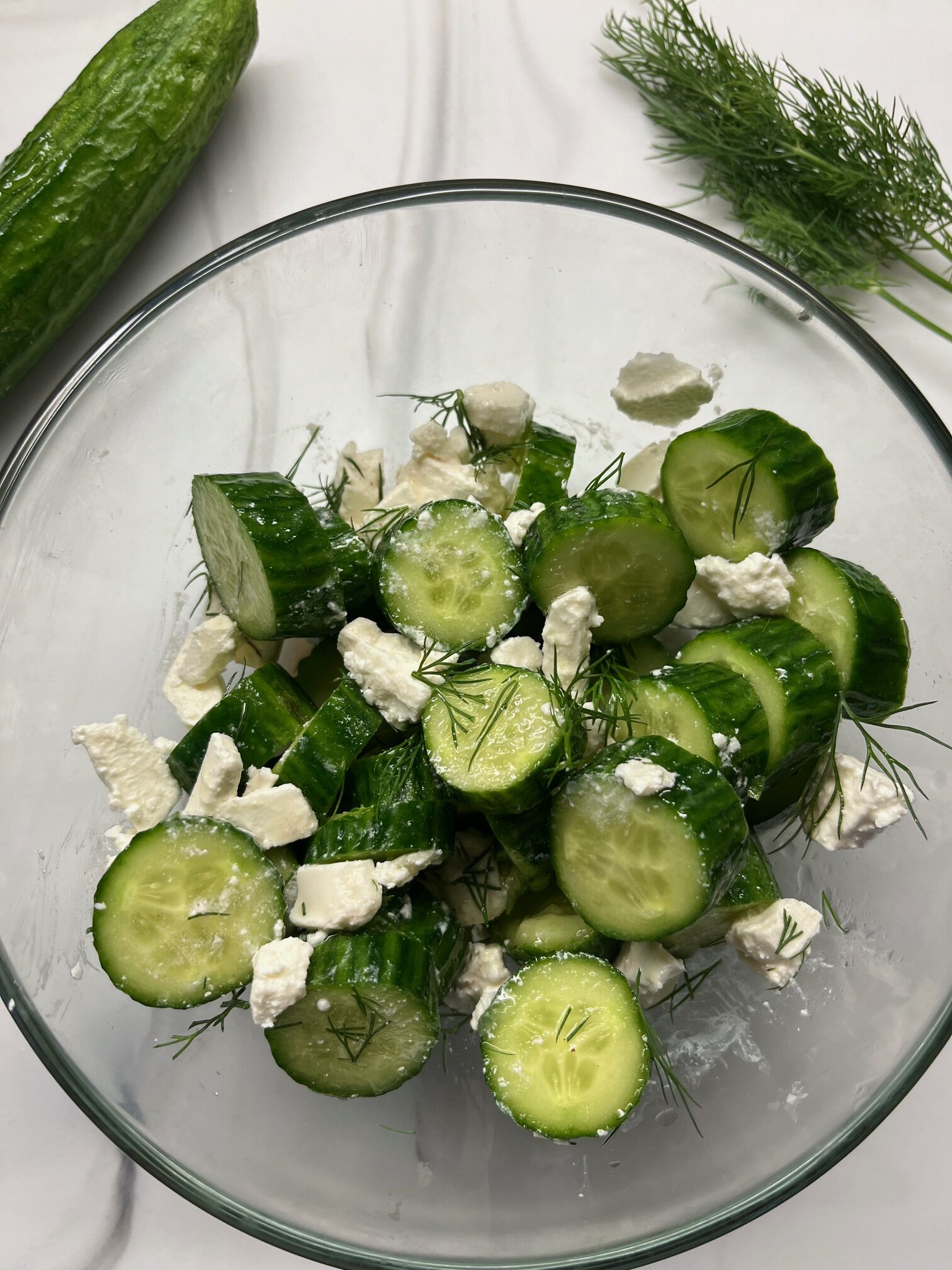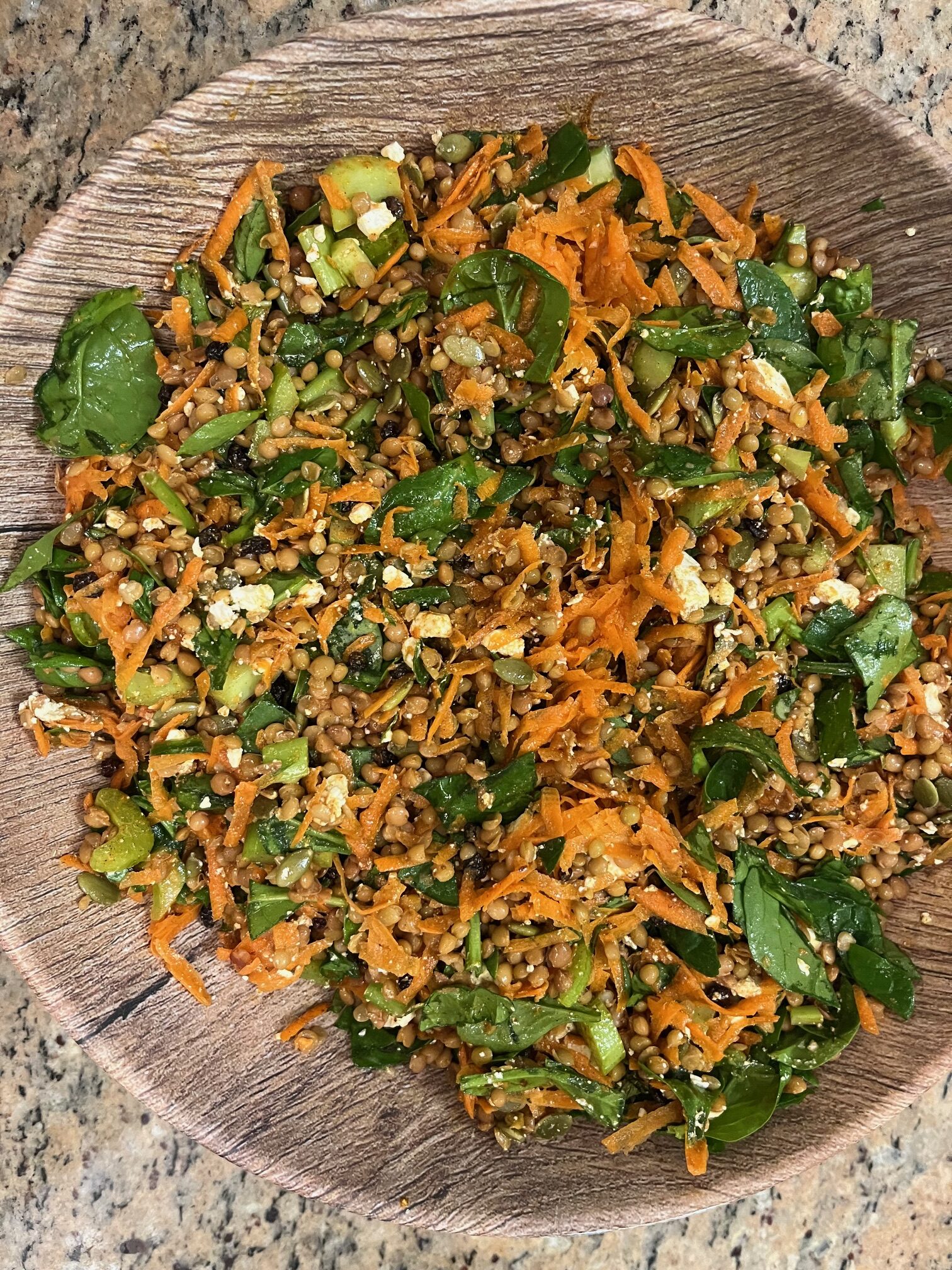Gut Boosting Vinegar Water
Time
<1 Min
Serves
1
Published March 20 2024 by Dr. Stephanie Gray, DC
This post may contain affiliate links.
Are you interested in learning new ways to support your gut health naturally?
You should try this simple and super beneficial Gut Boosting Vinegar Water. There are only 2 ingredients- vinegar & water. Yup, that’s it. You really can’t get any easier or more affordable than this.
You can use apple cider vinegar or balsamic vinegar which are packed with the gut loving benefits of acetic acid. Acetic acid is the main active component of vinegar.
When acetic acid reaches the gut, it serves as a substrate for gut bacteria. The bacteria ferment acetic acid producing BUTYRATE as a by-product of fermentation. Butyrate is an AMAZING and super important signaling molecule you’ve probably never heard of. It has far reaching and powerful effects on the body. It exerts a positive influence on all systems of the body. There’s a lot going on behind the scenes at the level of your gut microbiome. Health really does begin at the gut.
If you are interested, I will tell you more about acetic acid and the powerful impact butyrate can have on the digestive system, immune system, the brain, and metabolic system below.

Gut Boosting Vinegar Water
Equipment
-
1 drinking glass
Ingredients
- 1 tbsp apple cider or balsamic vinegar
- 1-1.5 cup water
Instructions
-
Add 1 tbsp of vinegar to a drinking glass.
-
Fill the glass with water. About 1-1.5 cups, depending on the size of your glass.
-
Drink on an empty stomach for best results.
Nutrition
What is acetic acid?
Acetic acid is a byproduct of fermentation and gives vinegar it’s characteristic odor. Vinegar is about 4-6 % acetic acid in water.
Acetic acid has anti-microbial properties that may help inhibit growth of harmful bacteria in the gut while promoting growth of beneficial bacteria.
When acetic acid reaches the colon, it serves as a substrate (food) for gut bacteria. The bacteria ferment the acetic acid producing butyrate. Butyrate is a surprisingly important signaling molecule that has far reaching benefits on all systems of your body, including the digestive system, the brain, the immune system and it has an effect on gene expression, energy metabolism and metabolic health.
How does Butyrate affect different parts of the Body?
Butyrate exerts a powerful effect on the digestive system, the immune system, the brain and metabolic system. I will attempt to unpack some of the things I have learned here.
And yes- all you have to do is drink vinegar and water to benefit from butyrate. Are there other ways to get your gut bacteria to produce butyrate? Yes, for sure there is. I’ll talk about that further down in the article.
The digestive system:
Butyrate helps strengthen and supports the gut lining. How does it do this? There are several mechanisms:
1- Protects from Leaky Gut: Butyrate promotes the assembly and integrity of tight junctions in the intestinal wall. Tight junctions are protein structures that form a barrier between intestinal epithelial cells, regulating the passage of molecules and ions. If tight junctions are intact, intestinal permeability is reduced and harmful substances are kept out of the bloodstream. Leaky gut is linked to digestive problems (abdominal pain, diarrhea, constipation, bloating, etc) food sensitivities and allergies (ie. gluten), autoimmune diseases (Chrohn’s, rheumatoid arthritis, lupus, celiac disease) and other problems.
2-Increases Mucin Production: Butyrate stimulates the production of mucin, a glycoprotein that forms a protective layer over the intestinal epithelium. This mucous layer acts like a physical barrier, shielding the gut lining from pathogens, toxins and mechanical damage.
3- Regulates Inflammatory Responses: Butyrate helps mitigate inflammation in the gut by inhibiting inflammatory pathways. Chronic inflammation can compromise the integrity of the gut lining, leading to leaky gut syndrome and susceptibility to GI disorders.
4- Supports Cell Proliferation and Differentiation: Butyrate serves as food for the cells lining the gut promoting growth, proliferation and differentiation. This helps keep the gut lining healthy and facilitates repair of damaged tissues.
The Immune System:
Butyrate modulates the immune system in the gut, exerting anti-inflammatory effects and promoting immune tolerance. This can help in preventing inflammation and autoimmune reactions.
1- Inhibits expression of pro-inflammatory genes: It appears that butyrate inhibits the activity of NF-kappa B, a key transcription factor involved in the expression of pro-inflammatory genes. By blocking activation, butyrate suppresses the production of pro-inflammatory cytokines.
2- Activates anti-inflammatory pathways: It also appears that butyrate promotes the activation of anti-inflammatory signaling pathways that lead to suppression of inflammatory gene expression and the genes involved in anti-inflammatory responses. This is a good thing! It helps shift the immune response towards an anti-inflammatory state, reducing inflammation.
3- Butyrate influences the function of immune cells, including macrophages, dendritic cells and T-cells by modulating their cytokine production and activity. Butyrate appears to balance the promotion of anti-inflammatory cytokines and suppresses the production of inflammatory cytokines, helping to balance any immune response.
4- Stronger gut lining = better immune response: Above, we talked about how butyrate helps to strengthen the gut lining. A stronger gut lining, reduces the activation of the immune cells and the subsequent inflammatory response triggered by microbial products entering the bloodstream.

Brain Health:
There is emerging evidence that butyrate may have neuroprotective effects and could play a role in maintaining cognitive function and mental health.
1- Modulates Inflammation: Butyrate benefits the brain through its role in reducing inflammation in the gut and the overall inflammatory burden on the body. Chronic inflammation is known to be involved in the pathogenesis of neurodegenerative diseases such as Alzheimer’s and Parkinson’s.
2- Maintains the Blood Brain Barrier (BBB): Butyrate helps maintain the integrity of the BBB, a crucial barrier that regulates the passage of molecules between the bloodstream and the brain. By supporting the BBB, butyrate can help prevent the entry of harmful substances and pathogens into the brain, protecting against neuroinflammation and neuronal damage.
3- Neurotransmitter Production: Interestingly, butyrate can also influence the production of neurotransmitters such as serotonin and dopamine, which play enormous roles in mood regulation and cognitive function. By modulating neurotransmitter levels, butyrate may contribute to improved mood and cognitive performance.
4- Energy for the brain- Butyrate serves as an important energy source for certain cells in the brain, providing metabolic support to neurons. This reduces dependance and demand on glucose for energy. There is growing evidence that in neurodegenerative conditions, there is resistance to getting glucose in brain cells. This can lead to a shortage of energy in the brain, thereby affecting function of cells to carry out their duties. Butyrate as a fuel can offload the demand for glucose in brain cells by providing an alternate energy source. This can enhance overall brain health and resilience to injury and disease.
5-Gene Expression: Butyrate can activate genes involved in neuroprotection while suppressing genes associated with neuroinflammation and cell death. It does this through its action on histone deacetylase, which affects gene expression.
Metabolic health:
1- Reduced gluconeogenesis: Gluco-neo-what? Gluconeogenesis is a process by which your liver converts non-carbohydrate sources (amino acids and glycerol) to glucose to be used as fuel for the body (ie when you’re sleeping and the body needs fuel). Butyrate can be utilized as a fuel by certain cells like muscle cells and gut cells, providing an alternate energy source to glucose, reducing the demand and dependance on glucose for fuel. This can help lower blood glucose levels and improve insulin sensitivity. The burden on insulin signaling pathways is also reduced, which is beneficial for overall metabolic health. This can help reduce the risk of conditions like type 2 diabetes.
2- Increases uptake of glucose into muscle cells: Butyrate appears to influence various enzymes and signaling pathways involved in glucose metabolism. It has been shown to increase the expression and activity of the GLUT4 transporter and AMPK, both promote increased uptake and utilization of glucose into muscle cells. This takes the burden off insulin to do the job of pushing glucose into the cells. It may help improve insulin sensitivity.
Is there anything else you can do to get your gut bacteria to produce butyrate?
Yes! When gut bacteria are exposed to dietary fibre, particularly soluble fibres found in foods like whole fruits, whole vegetables, beans, and oats, the bacteria ferment these fibres in the colon, which leads to the production of butyrate as a byproduct. Eating resistant starches can also help. What are resistant starches? These are foods that resist digestion in the small intesting and reaches the colon intact where they are fermented by gut bacteria to produce butyrate. These foods include green bananas, cooked and cooled potatoes, legumes and some whole grains (oats, barley, sorghum, teff) So keep eating fibre-rich foods and resistant starches to keep your gut bacteria happy and healthy. It will serve you well!
Also, some studies suggest that regular exercise can increase the abundance of butyrate producing bacteria in the gut. Exercise isn’t just good for your cardiovascular system but your gut bacteria as well.

I’m a doctor of chiropractic, with a special interest in nutrition. I am passionate about healthy eating and using food to heal thyself. Food should be made in a kitchen not a factory. I believe in eating whole foods, keeping processed foods to a minimum. It is my goal to show you that eating healthy and cooking at home can be simple and very rewarding! All of my recipes are gluten-free. Some are ketogenic or paleo friendly.



